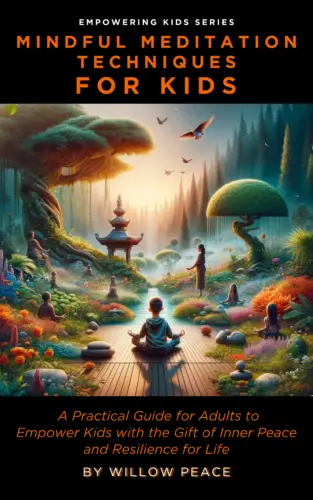By Josh Richardson
Guest writer for Wake Up World
Gains in the ability to sustain attention developed through intensive meditation training are maintained up to seven years later, according to a new study published in the Journal of Cognitive Enhancement.
Regular meditation effectively supports mental, emotional, and physical health in numerous tangible ways. Several previous studies have supported the hypothesis that meditation training improves practitioners’ emotional regulation. Meditation training programs can have measurable effects on how the brain functions even when someone is not actively meditating, especially in areas related to pain.
In building upon this strong body of evidence, researchers are continuing to deepen our understanding of the profound and inspirational benefits of regular meditation practice in everyday life…
The study, based on the Shamatha Project, is a major investigation of the cognitive, psychological, and biological effects of meditation led by researchers at the University of California, Davis, Center for Mind and Brain.
“This study is the first to offer evidence that intensive and continued meditation practice is associated with enduring improvements in sustained attention and response inhibition, with the potential to alter longitudinal trajectories of cognitive change across a person’s life,” said first author Anthony Zanesco, a postdoctoral researcher at the University of Miami, who began work on the project before starting his Ph.D. program in psychology at UC Davis. The project is led by Clifford Saron, a research scientist at the UC Davis Center for Mind and Brain, in collaboration with a large group of researchers.
The Shamatha Project is the most comprehensive longitudinal study of intensive meditation yet undertaken and has drawn the attention of scientists and Buddhist scholars alike, including the Dalai Lama, who has endorsed the project. It examines the effects of two intensive meditation retreats held in 2007 at the Shambhala Mountain Center in Red Feather Lakes, Colorado. The study followed 60 experienced meditators who attended these three-month meditation retreats and received ongoing instruction in meditation techniques from Buddhist scholar, author, and teacher B. Alan Wallace of the Santa Barbara Institute for Consciousness Studies. They attended group meditation sessions twice a day and engaged in individual practice for about six hours a day.
Gains Maintained in Regular Meditators
Immediately after the study, participants in the meditation retreat showed improvements in attention as well as in general psychological well-being and ability to cope with stress.
Since the retreats, the researchers have followed up with participants at six and 18 months and most recently at seven years. The 40 participants who remained in the study at this latest follow-up all reported that they continued some form of meditation practice over the seven-year period, equivalent to about an hour a day on average.
The new study shows that those gains in attention observed immediately after retreat were partly maintained seven years later, especially for older participants who maintained a more diligent meditation practice over the seven years. Compared to those who practiced less, these participants maintained cognitive gains and did not show typical patterns of age-related decline in sustained attention.
The participants’ lifestyle or personality might also have contributed to the observations, Zanesco noted. Benefits from meditation appeared to have plateaued after the retreats, even in participants who practiced the most: This could have implications for how much meditation can, in fact, influence human cognition and the workings of the brain, he said.
Recommended articles by Josh Richardson:
- 20 Sources of Pain in the Body are Each Directly Tied to Specific Emotional States
- How Does Your Consciousness Make Everything Real?
- Fascinating New Study Shows How Emotions Are Mapped On The Human Body
- Thought-Provoking Quantum Experiments Show Reality is Only an Illusion
- The Electromagnetic Field is Depleted in Those Who are Unhealthy
- How to Avoid Empathy Burnout When You are Surrounded by Other People’s Pain
- 9 Reasons You Need To Be Giving and Receiving Hugs Every Day
- How Music and Meditation Address Memory Loss
- Study Confirms That Matters of the Heart Directly Influence the HEALTH of Your Heart
- Photographer Shows Proof of Amazing Similarities In Human Templates Between Complete Strangers
About the author:
Josh Richardson is blogger, healer, and a constant pursuer of the natural state of human consciousness.
You can follow Josh at preventdisease.com, where this article first appeared.
Are limiting beliefs holding you back? Most of us carry subconscious narratives that keep us from realizing our dreams. Quantum-Touch, a revolutionary energy healing technique, offers a pathway to dismantle these barriers. By combining breathing and body-awareness practices, you can tap into your super-consciousness and unlock your true potential.
During this free online event, you’ll experience a guided Quantum-Touch practice that provides an energetic reset, helping you release self-doubt and embrace abundance. Learn how to connect with your deepest self and discover what instructor Deborah calls “YOU-ness” — a profound inner knowing that guides you toward clarity and confidence.
This is your opportunity to transform your life and leave limitations behind. Don’t wait — RSVP now to join this powerful session and step into a world of boundless possibilities!
 If you’ve found value in our articles, we’d greatly appreciate your support by purchasing Mindful Meditation Techniques for Kids—A Practical Guide for Adults to Empower Kids with the Gift of Inner Peace and Resilience for Life.
If you’ve found value in our articles, we’d greatly appreciate your support by purchasing Mindful Meditation Techniques for Kids—A Practical Guide for Adults to Empower Kids with the Gift of Inner Peace and Resilience for Life.
In the spirit of mindfulness, we encourage you to choose the paperback version. Delve into its pages away from screen glare and notifications, allowing yourself to fully immerse in the transformative practices within. The physical book enriches the learning process and serves as a tangible commitment to mindfulness, easily shared among family and friends.
Over the past few years, Wake Up World has faced significant online censorship, impacting our financial ability to stay online. Instead of soliciting donations, we’re exploring win-win solutions with our readers to remain financially viable. Moving into book publishing, we hope to secure ongoing funds to continue our mission. With over 8,500 articles published in the past 13 years, we are committed to keeping our content free and accessible to everyone without resorting to a paywall.








